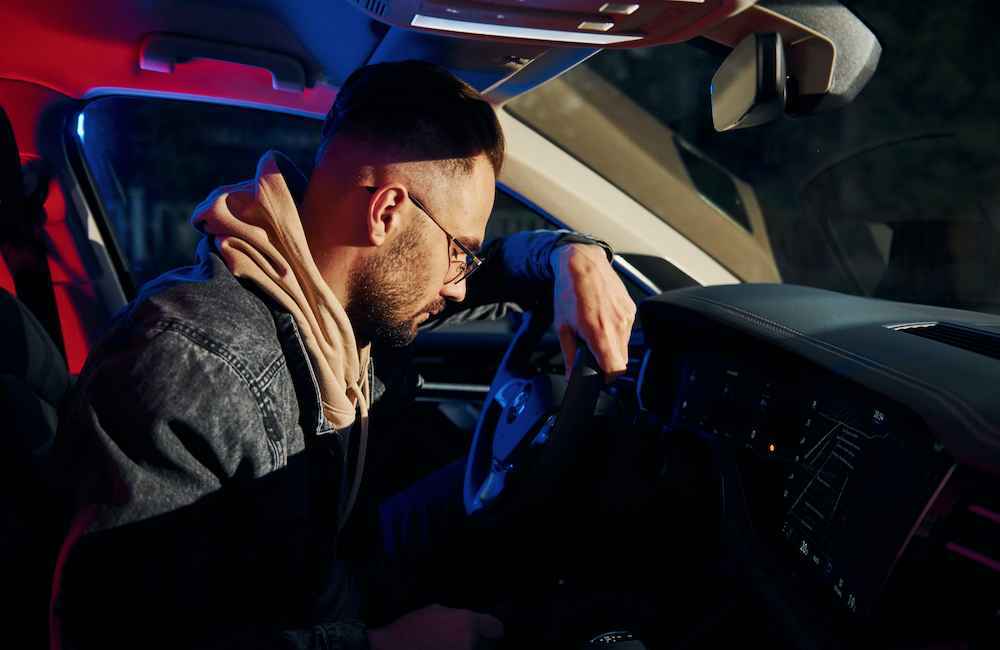Pulled Over For a DWI? Here’s What to Do.

When pulled over for a DWI, people tend to have misconceptions about what to do. When you follow the steps below, you protect yourself and your rights. With a DWI in Texas, you have a conviction that follows you for years. Texas takes these charges seriously, and they carry severe consequences.
Protect your rights and seek the advice of a skilled, experienced DWI lawyer. When you have an advocate on your side, you have a better chance to reduce or dismiss your charges.
What Officers Need to Arrest You for a DWI
In order to arrest you for a DWI, a police officer only requires “probable cause.” Essentially, this means that the facts and circumstances within their knowledge are enough for a reasonable person to believe you committed a crime.
However, probable cause does not come from their own suspicion. It must be rooted in facts and the circumstances of your case. Therefore, when pulled over for a DWI, you do not want to offer them any measure of probable cause to arrest you.
Pulled Over a DWI: What to Do
Pull Over in a Calm Manner
As you pull over immediately (when it’s safe to do so), use your turn signal and come to a complete stop. The most important thing to remember is that when pulled over, officers record everything about the stop.
This includes your driving moments before the stop.
Be Polite
With the recording in mind, remember that this includes your conversation. Behave appropriately and calmly. Don’t give anyone watching the video in the future reason to believe you were unreasonable or drunk.
Avoid combative behavior as you speak with the officer.
Don’t Admit to Drinking
When pulled over for a DWI, you have to provide the officer with your name, registration, driver’s license, and car insurance information. However, you don’t have to answer any questions they ask you.
For instance, “How much have you had to drink tonight?” This is a common question during a suspected drunk driving stop. Still, you do not have to answer this.
In fact, it’s in your best interest to avoid saying anything. As they record the conversation, any admission to drinking is potential evidence against you in court.
The biggest issue with admission is how vague the question and answer are. While the officer asks you to admit how much you drank prior to driving, they rarely ask follow-up questions. For example, they don’t consider the following information.
- The kind of alcohol
- Size of drinks
- When you stopped drinking
- What you had to eat
In Texas, it is perfectly legal to have a drink and then drive. However, it is illegal to drink and then drive impaired. When your BAC hits a specific level, though, it becomes driving while intoxicated.
If you admit to drinking, be sure to explain the details thoroughly. Tell them when you had the drink, over what period of time, and whether you had anything to eat. When you build out the circumstances, you provide more detail in the event you go to court.
Do Not Submit to Field Sobriety Tests
When pulled over for a DWI, police have the option to ask you to step out of your vehicle. However, they cannot force you into field sobriety tests. It’s important to remember that these tests are fully voluntary.
When a police officer asks you to leave your vehicle, it is essential to comply. Try not to balance yourself on your door or vehicle as you exit.
Once out of the vehicle, respectfully decline to perform any field sobriety tests. If pressed, simply state that your lawyer advised you to never submit to these tests.
The foundation of field sobriety tests is tripping people up. For people with poor balance in their everyday life, some are impossible regardless of alcohol consumption. Even for those with great balance, there’s still plenty of opportunities to fail these tests.
Do Not Submit to Chemical Tests
When pulled over for a DWI, it’s okay to decline any breath, urine, or blood tests if you consumed alcohol earlier. There are many reasons behind this.
- Oftentimes, breath tests produce unreliable results.
- Officers arrest you for a DWI regardless of whether you take a BAC test.
After refusing the test, the state automatically subjects you to an Administrative License Suspension (ALS). However, you have to serve this suspension anyways if convicted. This means there’s little to no incentive for these tests.
If you decide to take a breath, urine, or blood test when pulled over for a DWI and the results are above the legal limit, it doesn’t mean you are guilty. With a lawyer on your side, there are plenty of options to build a defense.
Take Advantage of Your Right to Remain Silent
When placed in a police vehicle, do not make any statements. Oftentimes, these cruisers have microphones and cameras. Anything you say becomes a matter of record.
Additionally, it’s important to remember that you have the right to call an attorney at any point after you are pulled over for a DWI.
What Should I Say When Police Officers Ask Whether I’ve Been Drinking?
When you didn’t drink, honestly answer “no” when the police ask. However, if there’s even a small amount of alcohol in your system, it’s important to avoid incriminating yourself. A common answer is “I have been advised by an experienced law firm not to answer any questions.”
There are a couple of reasons to provide this answer. First, it’s true because the Martinez Law Firm has decades of experience. Second, this answer does not incriminate you in any way. It doesn’t provide the officer with anything for future testimony because it does not establish probable cause.
Pulled Over for a DWI? Call Our Defense Team
When pulled over for a DWI, it’s important to remember that you have rights. After an arrest, it’s important to act fast because there’s often still a chance to save your driver’s license. At the Martinez Law Firm, we have decades of experience helping people after a DWI arrest.
We understand what’s on the line, and we know how to build a strong defense. Our team works diligently to pursue the best possible outcome for your case. Oftentimes, this means dismissal or reduced charges.
To learn more about your rights and protect your future, schedule a free consultation with our DWI team today.





